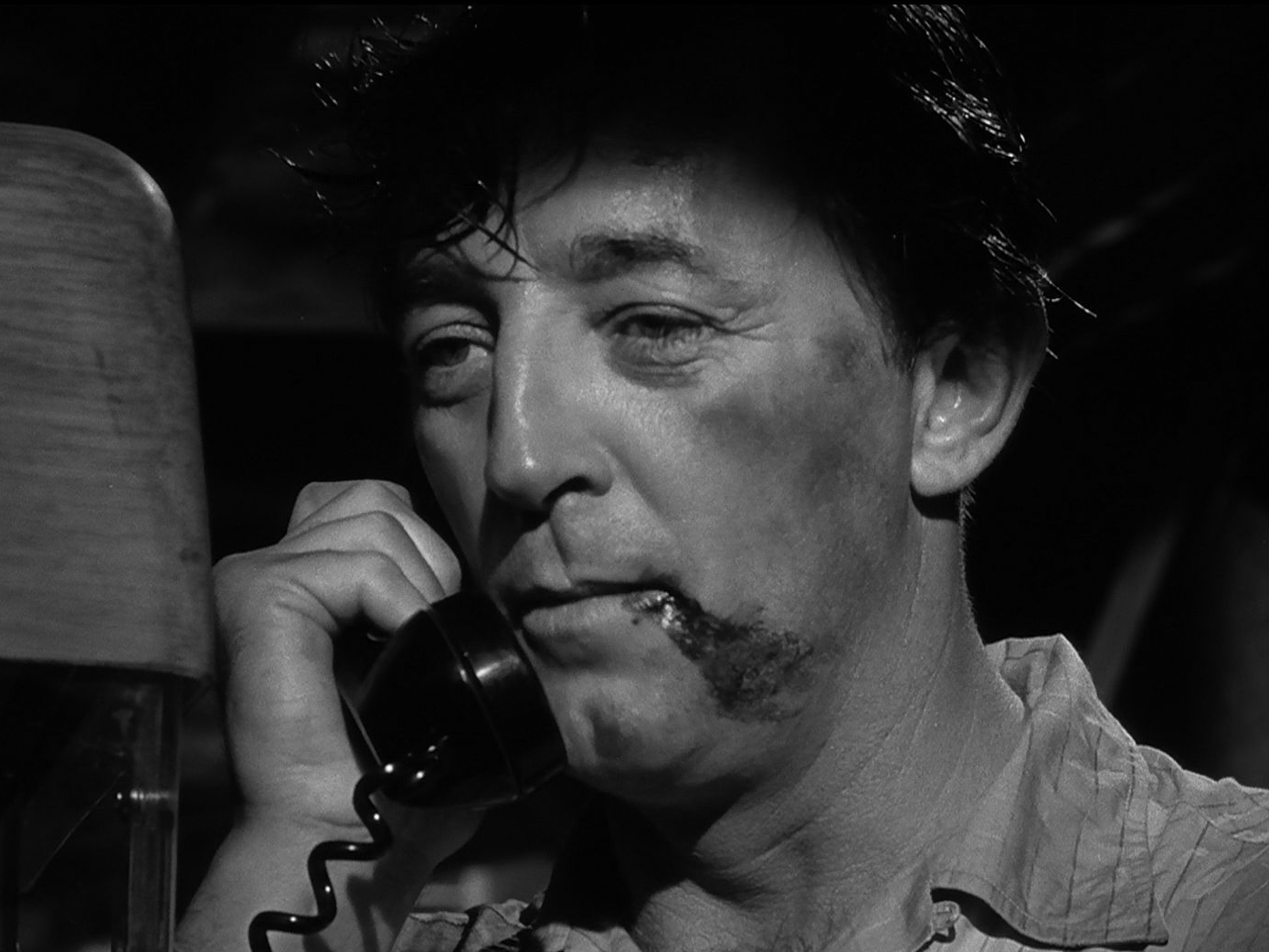
Upon his release after spending eight years in prison for rape, Max Cady tracks down Sam Bowden, the lawyer he holds personally responsible for his conviction. He stalks and threatens Bowden and his family.
“Mitchum’s own life has been remarkably like those of the characters he plays in films. […] He hitchhiked, rode freights and worked odd jobs, crossing the country in this way nine times. […] Arrested for vagrancy at the age of sixteen, he spent six days on a Georgia chain gang. According to Mitchum, ‘It was the Chatham County Camp No. 1, Pipemaker Swamp, in Savannah. They arrested me for what they called hanging around. They put you in chains and whacked you around for laughs. The next time I was down there was to star in Cape Fear. In honor of the occasion, they ran my old mug shot on the front page of the local paper. They’re great folks down there.’”
John Belton1
“Mitchum’s Cady was not about to start turning any Grand Guignol horror movie tricks and was no psychologically profiled bundle of psychotic neuroses. He was drawn from life, conceived at gutter level, where the trash collects easily and play-acting looks foolish. His Cady didn’t strain a muscle – he wasn’t metaphor or an instrument of fate. He was a man, as unpredictable as a man. Representing only himself, acting according to his own choices.”
Damien Love2
“But it’s limiting to ascribe a one-note viciousness to Mitchum’s performance. His talent is his unpredictability – when playing a villain he retains warmth; when playing a hero, there is potential treachery. He’s a malevolent creature in The Night of the Hunter, yet patently charismatic; sinister and sadistic in Cape Fear (J. Lee Thompson, 1962), yet still, unnervingly, dangerously sexy to watch. Mitchum’s greatest characterisations are never just one thing; never only black or white.”
Joanna Di Mattia3
- 1John Belton, Robert Mitchum. New York: Pyramid Publications, 1976, p. 13.
- 2Damien Love, Robert Mitchum. Solid, Dad, Crazy. London: B.T.Batsford, 2002, p. 87.
- 3Joanna Di Mattia, “‘Take Me As I Am’: Robert Mitchum’s Contradictory Masculinity in Home from the Hill (1960)”, Senses of Cinema, 2017.

